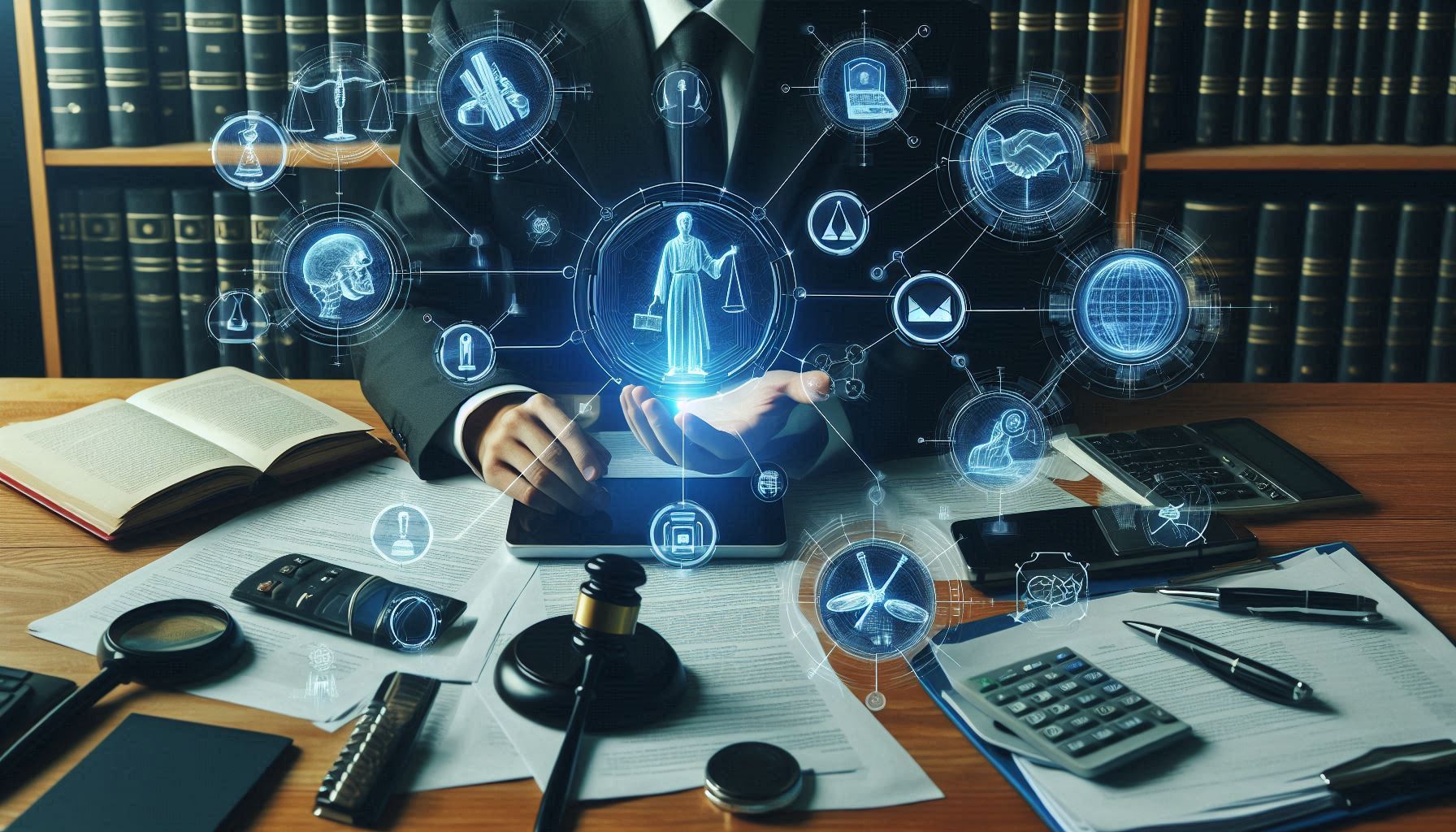Legal technology, often referred to as “legal tech,” is a term that covers a broad range of technology-driven tools and software solutions specifically designed to assist in legal tasks. From document automation to data analytics, legal technology is streamlining processes, improving accuracy, and enhancing the accessibility of legal services for both professionals and clients. Let’s dive into the details of legal technology, its applications, and how it’s shaping the future of the legal industry.
Understanding Legal Technology
Legal technology encompasses any technology that assists legal professionals in delivering services more efficiently. It often involves tools that automate or facilitate complex processes like legal research, case management, contract drafting, and client communication.
Key Areas of Legal Technology
- Document Management Systems
These systems allow legal professionals to store, retrieve, and organize legal documents with ease. Document management tools help maintain confidentiality, manage access, and enable quick searches, saving hours of manual labor. - Case Management Software
Case management software centralizes case-related information, making it easy to track case details, client data, deadlines, and documents. It’s crucial for law firms aiming to handle multiple clients and cases efficiently. - E-Discovery
Electronic discovery, or e-discovery, involves the use of digital tools to search, collect, and analyze electronic information in response to litigation or investigation requests. This process has become essential as vast amounts of information are stored digitally.
Why Legal Technology is Essential
Legal technology is transforming the traditional legal landscape, making services more accessible, reducing costs, and enhancing accuracy. Here are some reasons why it’s become a necessity:
- Increased Efficiency: Automation and streamlined workflows help legal professionals manage large caseloads without sacrificing quality.
- Cost Savings: Legal tech reduces the time spent on repetitive tasks, cutting down operational costs, which can be passed on as savings to clients.
- Enhanced Accuracy: With AI and machine learning, legal tech tools can analyze large datasets without error, ensuring more precise outcomes.
Types of Legal Technology Tools
1. Document Automation
Document automation software allows law firms to quickly create standard legal documents, like contracts, without manually drafting them each time. By using templates and predefined clauses, legal professionals can ensure consistency and accuracy.
2. AI-Powered Legal Research Tools
AI-powered research tools, like LexisNexis or Westlaw, are transforming how legal professionals conduct research. By automating legal research, these tools reduce the time it takes to find relevant cases, statutes, and regulations.
3. Online Dispute Resolution (ODR) Platforms
ODR platforms enable parties to resolve disputes digitally, which can be faster and more affordable than traditional litigation. These platforms are commonly used in cases like consumer disputes or family matters.
4. Virtual Law Firms
The rise of virtual law firms has redefined client-lawyer interactions. Clients can now access legal assistance without visiting a physical office, making legal services more accessible and convenient.
Benefits of Legal Technology
1. Improved Client Accessibility
Legal tech expands the reach of legal services. With online tools, clients can access lawyers from anywhere, breaking down geographical barriers and making legal help more accessible.
2. Increased Transparency
Case management tools allow clients to track the progress of their cases, providing greater transparency and trust between clients and their lawyers.
3. Better Risk Management
Legal technology, especially data analytics, helps law firms identify potential risks in contracts or case strategies. This enables firms to take proactive measures, protecting both clients and the firm.
4. Enhanced Collaboration
Cloud-based legal tech solutions enable team collaboration across different locations, allowing multiple professionals to work on the same case simultaneously, which improves productivity and teamwork.
Challenges in Legal Technology Adoption
Despite its benefits, the adoption of legal technology does face certain challenges, including:
- Data Security and Privacy Concerns: Legal documents contain sensitive data, and maintaining client confidentiality is paramount. The use of cloud services must comply with stringent data protection laws.
- Cost of Implementation: Advanced legal technology solutions can be expensive to implement, especially for small firms.
- Training and Adaptation: Legal professionals need adequate training to use new technology effectively, which can take time and resources.
Future of Legal Technology
The legal industry is rapidly evolving, and the future of legal technology looks promising:
- Increased Use of Artificial Intelligence: AI is set to play a more prominent role, from predictive analytics in case outcomes to contract review automation.
- Blockchain for Smart Contracts: Blockchain technology will likely streamline contract management, ensuring secure, transparent, and self-executing agreements.
- Data-Driven Decision-Making: Data analytics will become integral to legal strategies, allowing firms to make decisions backed by evidence and insights.
Conclusion
Legal technology is reshaping the legal profession, driving efficiency, accessibility, and transparency. By embracing legal tech tools, law firms and solo practitioners can provide better services, cut costs, and remain competitive in a rapidly changing market. As innovations like AI and blockchain continue to evolve, they will bring even more transformative benefits to the field, making legal services faster, more accurate, and more client-focused than ever.



